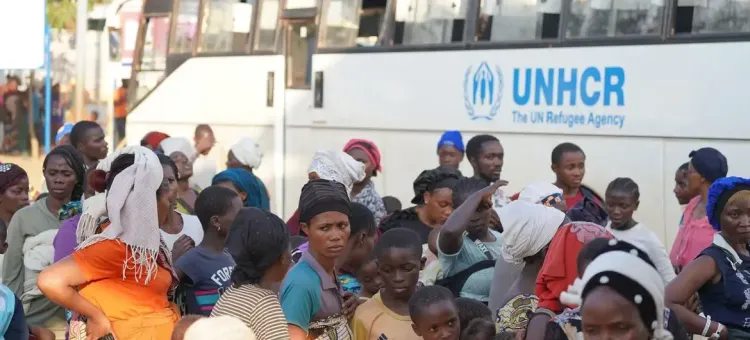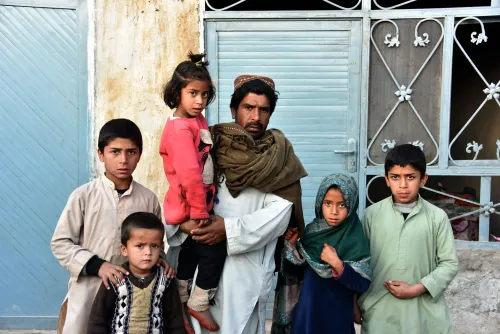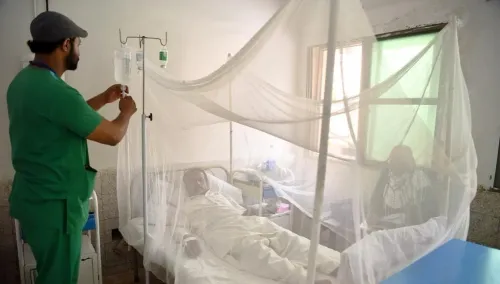Crisis in Congo Triggers Massive Refugee Surge into Uganda, Straining Resources: UNHCR

Synopsis
Key Takeaways
- Over 41,000 refugees have fled to Uganda from DRC.
- Many refugees have experienced severe trauma during their journey.
- Uganda hosts nearly 600,000 refugees, the highest in Africa.
- Children are particularly vulnerable to health issues.
- Funding shortfalls are impacting humanitarian efforts.
Geneva, April 9 (NationPress) The UN refugee agency has reported that over 41,000 refugees have made their way from the Democratic Republic of the Congo (DRC) to Uganda since January, with many having experienced horrific events such as killings, sexual violence, and other traumatic incidents during their arduous journey.
The ongoing conflict in eastern DRC, involving Rwanda-backed M23 rebels and Congolese forces, has resulted in substantial loss of life and has displaced countless families from their homes.
As per a UN report issued on Tuesday, around 600 Congolese individuals have been crossing daily into Uganda since the end of last month. Uganda, hosting the highest number of refugees in Africa, currently accommodates nearly 600,000 refugees, out of a total of 1.8 million in the region.
“This situation threatens to overwhelm the country's capabilities, as it also addresses the needs of over 70,000 Sudanese refugees fleeing the ongoing conflict in Sudan. The transit centers are overwhelmed, with Uganda's Nyakabande, a key transit hub, reaching six times its intended capacity,” stated the United Nations High Commissioner for Refugees (UNHCR).
The agency noted that many of the new arrivals—predominantly women and children—have traveled by foot or local transport, with reports indicating that men are often traveling separately from their families to avoid forced recruitment by armed groups.
Children are particularly at risk, often arriving in poor health due to widespread malaria and malnutrition, according to the UNHCR.
A lack of funding is severely hampering the humanitarian response, causing the UNHCR to scale back certain essential protection services, including legal aid for refugees, to concentrate on the most pressing needs.
“While the Ugandan government, UNHCR, and partners are striving to enhance support for the newly arrived refugees, crucial services nationwide have had to be deprioritized, leading to health facility closures and the loss of approximately 250 health workers,” the UNHCR added.
A report from the UN Human Rights Council, released on April 1, highlights the ongoing suffering of civilians in the DRC due to persistent violence. In North and South Kivu, there were 602 reported victims of extrajudicial or summary executions within just two months.
Last week, the UN Office for the Coordination of Humanitarian Affairs (OCHA) cautioned that the continuing violence in North and South Kivu in the DRC is still claiming lives, causing injuries, and displacing civilians.









